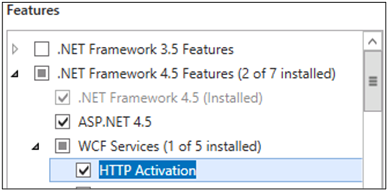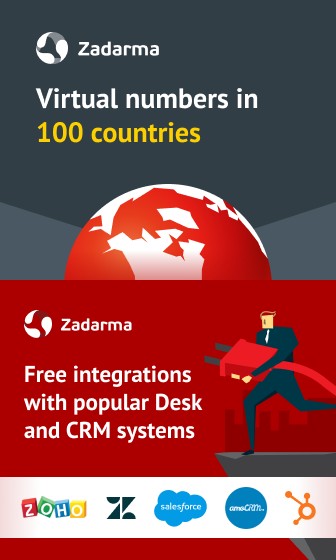Skype for Business Server 2019 is available now, along with a new set of demands to install it right on your Windows Server.
Microsoft recommends Windows Server 2019 and Windows Server 2016 only as host operating systems
Skype for Business 2019 supports .NET Framework 4.8 !
Here are the list of prerequisites that should be installed before you begin your Skype for Business 2019 installation:
All servers:
| Software/role | Details |
|---|---|
| Windows PowerShell 3.0 | All Skype for Business Server servers need Windows PowerShell 3.0 installed. • This should be installed by default with Windows Server 2016. |
| Microsoft .NET Framework | WCF services is a Feature that’s installed as a Windows feature, under Server Manager, initially no downloads needed. • You need to make sure, when you install this feature, or if it’s already installed and you’re checking on it, that the HTTP Activation option is also checked and installed, like so:  Don’t worry if you get an additional pop-up saying some other things need to be installed for HTTP Activation to be installed. That’s normal; click OK and go ahead. If you don’t get this pop-up, you can assume those things are already installed and go ahead. Microsoft .NET Framework is usually installed when Windows Server 2016 is installed. Skype for Business Server requires Microsoft .NET Framework 4.7 or 4.8 though, so you’d probably need to update it. You can find the update here |
| Media Foundation | For Windows Server 2016, the Windows Media Format Runtime installs with Microsoft Media Foundation. All Front End Servers and Standard Edition servers used for conferencing require Windows Media Format Runtime to run the Windows Media Audio (.wma) files that the Call Park, Announcement, and Response Group applications play for announcements and music. |
| Windows Identity Foundation | We need Windows Identity Foundation 3.5 to support server-to-server authentication scenarios for Skype for Business Server 2019. • For Windows Server 2016, there’s no need to download anything. Open Server Manager, and go to the Add Roles and Features Wizard. Windows Identity Foundation 3.5 is listed under the Features section. If it’s selected, you’re good. Otherwise select it and click Next to reach the Install button. |
| Remote Server Administration Tools | Role Administration Tools: AD DS and AD LDS tools |
Front End Servers and Standard Edition server also need:
| Software/role | Details |
|---|---|
| Internet Information Services (IIS) | IIS is needed on all Front End Servers, as well as all Standard Edition servers, with the following modules selected: • Common HTTP Features: Default Document, HTTP Errors, Static Content • Health and Diagnostics: HTTP Logging, Logging Tools, Tracing • Performance: Static Content Compression, Dynamic Content Compression • Security: Request Filtering, Client Certificate Mapping Authentication, Windows Authentication • Application Development: .NET Extensibility 3.5, .NET Extensibility 4.5, ASP.NET 3.5, ASP.NET 4.5, ISAPI Extensions, ISAPI Filters • Management Tools: IIS Management Console, IIS Management Scripts and Tools Note that Anonymous Access is also needed, but you get that when you install IIS, so you don’t have a place to select it on the list. |
| Windows Media Format Runtime | For Windows Server 2016, you’ll need to install the Media Foundation feature in Server Manager. You actually can start your Skype for Business Server 2019 installation without this, but you’ll be prompted to install it, and then reboot the server, before the Skype for Business Server 2019 install continues. It’s better to do it ahead of time. |
| Silverlight | You can install the latest version of Silverlight here. |
Powershell script to install Skype for Business prerequisites:
|
1 |
Add-WindowsFeature RSAT-ADDS, Web-Server, Web-Dyn-Compression, Web-Static-Content, Web-Default-Doc, Web-Http-Errors, Web-Asp-Net, Web-Net-Ext, Web-ISAPI-Ext, Web-ISAPI-Filter, Web-Http-Logging, Web-Log-Libraries, Web-Request-Monitor, Web-Http-Tracing, Web-Basic-Auth, Web-Windows-Auth, Web-Client-Auth, Web-Filtering, Web-Stat-Compression, Web-Dyn-Compression, NET-WCF-HTTP-Activation45, Web-Asp-Net45, Web-Mgmt-Tools, Web-Scripting-Tools, Web-Mgmt-Compat, Windows-Identity-Foundation, Server-Media-Foundation, Telnet-Client, BITS, ManagementOData, Web-Mgmt-Console, Web-Metabase, Web-Lgcy-Mgmt-Console, Web-Lgcy-Scripting, Web-WMI, Web-Scripting-Tools, Web-Mgmt-Service |
Directors also need:
IIS, with the following modules selected:
- Common HTTP Features
- Default Document
- HTTP Errors
- Static Content
- Health and Diagnostics
- HTTP Logging
- Logging Tools
- Tracing
- Performance
- Static Content Compression
- Security
- Request Filtering
- Client Certificate Mapping Authentication
- Windows Authentication
- Application Development
- .NET Extensibility 3.5
- .NET Extensibility 4.5
- ASP.NET 3.5
- ASP.NET 4.5
- ISAPI Extension
- ISAPI Filters
(If you’re wondering, it’s the same module set as the Front End Servers and Standard Edition servers, with the Dynamic Content Compression and Management Tools left out.)
Powershell script to install Skype for Business prerequisites on Directors:
|
1 |
Add-WindowsFeature RSAT-ADDS, Web-Server, Web-Static-Content, Web-Default-Doc, Web-Http-Errors, Web-Asp-Net, Web-Net-Ext, Web-ISAPI-Ext, Web-ISAPI-Filter, Web-Http-Logging, Web-Log-Libraries, Web-Request-Monitor, Web-Http-Tracing, Web-Basic-Auth, Web-Windows-Auth, Web-Client-Auth, Web-Filtering, Web-Stat-Compression, Web-Dyn-Compression, NET-WCF-HTTP-Activation45, Web-Asp-Net45, Web-Mgmt-Tools, Web-Scripting-Tools, Web-Mgmt-Compat, Windows-Identity-Foundation, Server-Media-Foundation, Telnet-Client, BITS, ManagementOData, Web-Mgmt-Console, Web-Metabase, Web-Lgcy-Mgmt-Console, Web-Lgcy-Scripting, Web-WMI, Web-Scripting-Tools, Web-Mgmt-Service |
If you encounter error 0x800F0954, check the article how to fix Windows Error 0x800F0954







